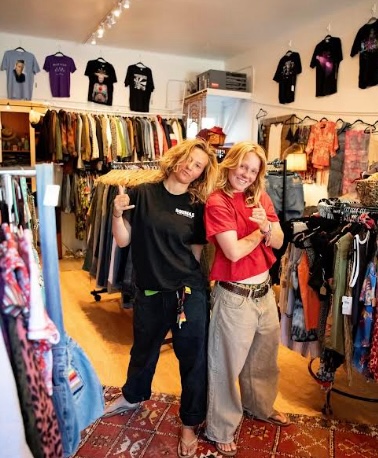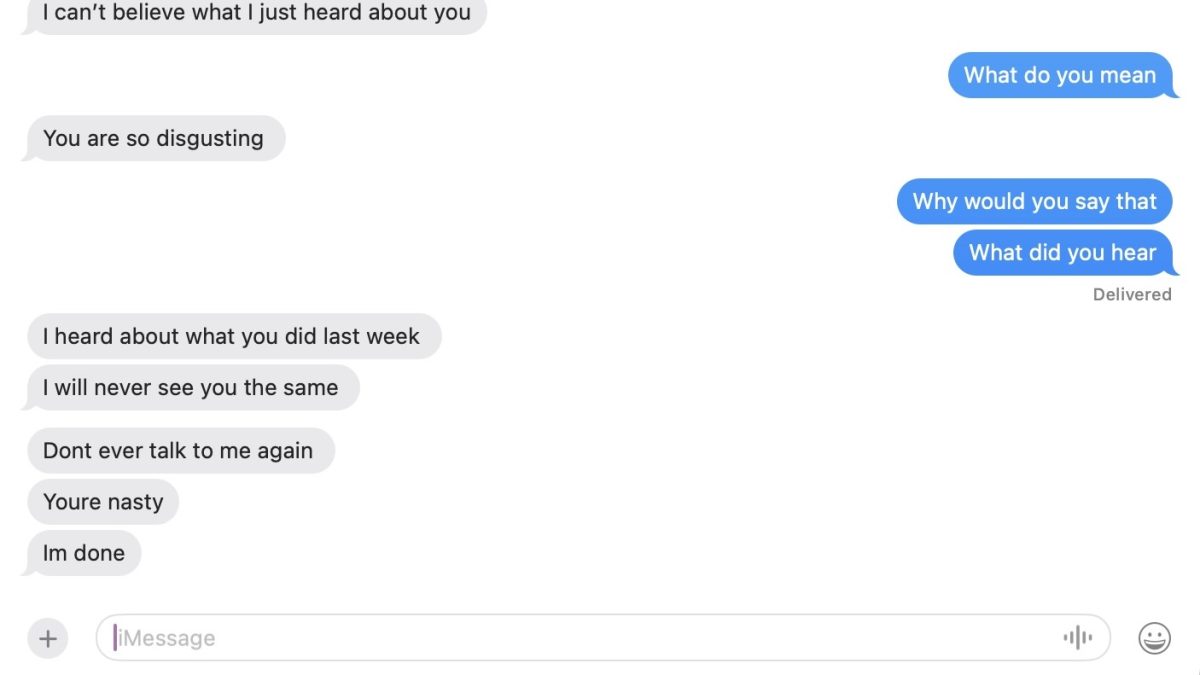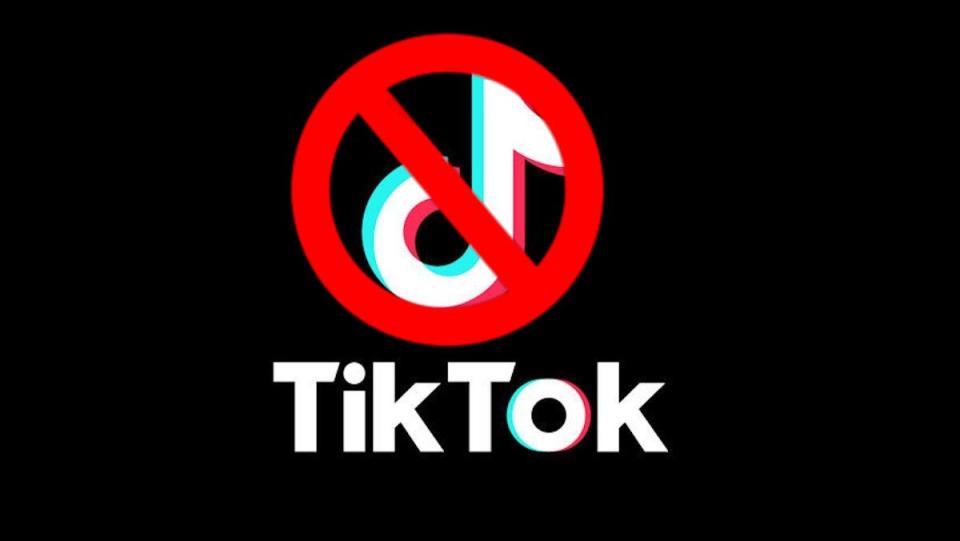Hookup culture, characterized by casual sexual encounters, has become a norm in today’s society. While some celebrate it as a form of freedom and personal choice, it also promotes harmful double standards that affect women. The SRHS hallways are full of this celebration and double standard.
However, there is one significant problem: the culture is not equally kind to both men and women. While men are often celebrated for their sexual achievements, women are shamed and put down for the same behavior. This double standard has been ingrained in our society for centuries, and it’s time we recognize the harm it causes to women while also questioning the ways it protects men.
For women, partaking in the trend of hookup culture typically comes with harsh social judgments. According to Dr. Jennifer Litner, sexologist and founder of Embrace Sexual Wellness, “Some heterosexual women may experience pressure to present themselves a certain way to be desired by men.”
As Dr. Litner notes, this societal pressure forces women into an impossible position where they are judged harshly regardless of their choices. Women are labeled as “sluts” or “whores.” They are faced with slander and shame for the actions that bring men praise and validation. Though it isn’t new, women have been held to stricter rules regarding their sexuality, while men have typically always been celebrated. Men’s actions are admired as a sign of dominance or success.
In the Journal of Sex Research, Mary Crawford and Danielle Popp explain how men’s sexuality has been normalized for a long time, while women’s sexuality has been viewed negatively. “Women were stigmatized for engaging in any sexual activity outside of heterosexual marriage, whereas for men such behavior was expected and rewarded,” they wrote.
Janelle Milam, a senior at SRHS, said, “Women who participate in hookup culture are immediately marginalized. There is no way of avoiding being called names such as a ‘slut’ or ‘whore’ when you are a female and choose to satisfy yourself with meaningless sex.” This harsh reality is seen everywhere, right under everyone’s nose. Many people do not realize how much these words can affect someone mentally. It causes women to look down upon themselves, mirroring the judgment of others.
The presence of social media plays a big role in this concept, making this double standard even more harmful. Platforms like Snapchat, Instagram, and TikTok allow people to hide behind their screens and express opinions that remain unsaid. Graysen Payne, a senior at SRHS, said, “Everything spreads so quickly and each time it gets out more context of the situation is spread.” This gives people more rumors and rude comments to say. It’s common for women to be shamed publicly on these social media platforms where rumors about sexual encounters can get spread instantly.
This double standard of strictly sexual relationships comes from a key problem: Men’s nature to be “sowing their wild oats” as Crawford and Popp state. This means that men are just fulfilling a natural part of their masculinity, which is a sad thing to hear. While men are praised and validated because of their masculinity, women are scrutinized.
“Men are out and about living their lives, not living each day worrying about if society or their friends will judge them based on who or how many people they are hooking up with,” said Milam. In comparison, women are constantly worried about how their sexual behavior will be perceived and have to watch and be careful of every action they take.
The emotional toll of this double standard is something many women face daily. It’s hard not to internalize the harsh words of others, especially when those criticisms come from people close to you. Milam shared from her personal experience that even her guy friends have called her a “slut” or “whore” simply for having friendly relationships with the opposite sex. Payne experienced similar circumstances where people she knew called her horrible things.
In my own experience, I’ve seen how damaging this double standard can be. I was unfairly labeled based on a rumor, which was both hurtful and isolating. People I barely knew judged me, while men around me engaging in similar behavior I was accused of were praised. It made me question why society allows men the freedom to explore their sexuality without consequence while women are put down. I’ve also watched close friends go through similar situations, and the constant judgment takes a toll, creating anxiety and self-doubt. These experiences have made me realize how deeply ingrained this issue is and why it’s so important to challenge it.
“Women are faced with a Maddona-whore conflict: They are either pure and virginal or promiscuous and easy,” writes Crawford and Popp. A woman should not have to choose between two extremes simply because choosing the “wrong” one means being looked down on. In today’s society, if you hook up with too many people you are labeled as a slut. But if you don’t, then you’re weird and cannot “pull.”
Though men may face criticism for being too wild or disrespectful, this rarely carries the same long-term social or emotional consequences. Women, on the other hand, are often defined entirely by their sexual choices. As Crawford and Popp write, “Men’s sexuality is normalized while simultaneously subjugating women’s sexuality.” Despite the negative comments men might receive, they are still mainly free from the social shame that women face.
Both men and women should be free to live their lives and express themselves however they feel without judgment. Most men are living their lives to the fullest in the sexual aspect of it so why shouldn’t women be able to do the same? We spend too much time telling others how to be respectable. There is no denying that hookup culture is a part of our culture now. It has been normalized, and whether or not it is a good thing depends on people’s views. So something in society needs to change. If we truly believe in equality, then we must challenge the double standards embedded in hookup culture. Women deserve the same freedom as men to make their own choices without fear of judgment. Only then can we create a society where everyone can live free from shame.








































Anonymous • Jan 11, 2025 at 4:39 pm
Just don’t hook up with anyone, it’s a simple solution. Society is screwed up anyways so it’s better to just not care what society says women have to do.
addie • Jan 21, 2025 at 2:02 pm
thanks for sharing